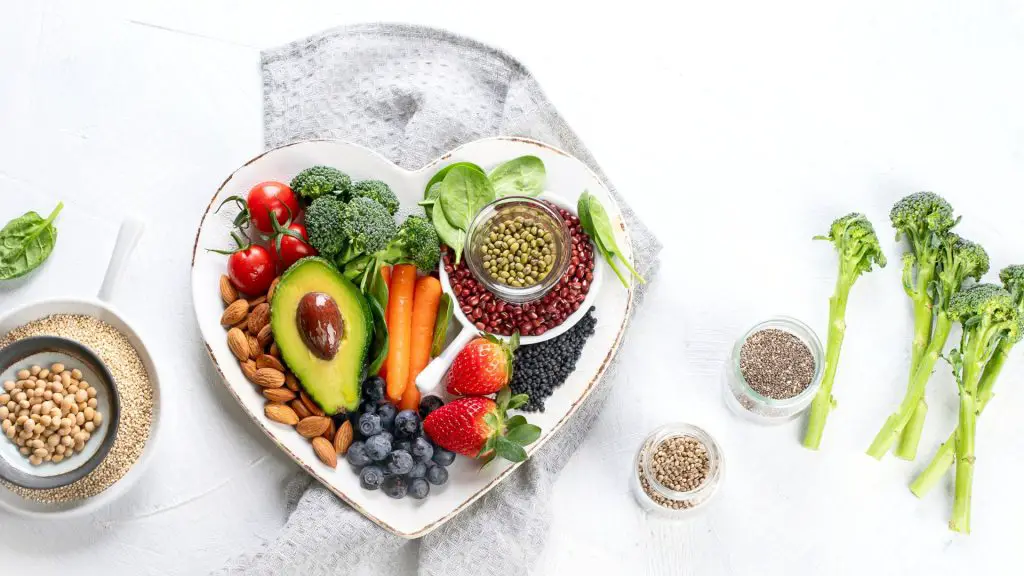Veganism is becoming an increasingly popular lifestyle choice for those looking to reduce their environmental impact and live “healthier” lives. But what is veganism? Veganism is refraining from consuming animal products, including meat, fish, milk, eggs, and honey.
In addition to avoiding the consumption of animal products, vegans also typically avoid using any products tested on animals or containing animal by-products, such as leather or fur.

The primary motivation behind going vegan is often rooted in concern for animals and the environment.
By eliminating animal products from one’s diet and lifestyle choices, vegans can significantly reduce their environmental footprint. Additionally, many people adopt a vegan lifestyle for its health benefits; research has shown that following a balanced vegan diet can help reduce risk factors for heart disease and certain cancers.
Benefits of Being Vegan

What are the benefits of choosing a vegan diet? Vegans can enjoy improved heart health thanks to the lower levels of saturated fat and cholesterol, which are typically found in plant-based foods. Mainly eating whole grains, fruits, vegetables, nuts, and seeds helps keep blood sugar levels stable and reduces inflammation throughout the body. Furthermore, studies have shown that those who follow a vegan diet are at a lower risk for certain types of cancers and diabetes.
In addition to better physical health, being vegan has mental health benefits. Many vegans report feeling more energetic after eliminating animal products from their diets due to higher intakes of vitamins and minerals only found in plant-based foods such as iron and folate. However, anyone could still reap these benefits simply by just eating more veggies along with their meats.
Possible Deficiencies

Does a vegan diet provide all the nutrients needed to stay healthy? What are the disadvantages of being vegan? Let’s explore whether or not a vegan diet can be nutritionally adequate and what potential deficiencies may exist when following such an eating plan.
Vegans can meet their nutritional needs if they make wise food choices and consume enough calories. However, some people on this diet may experience certain nutrient deficiencies, which could lead to harmful effects on health and wellness. Common nutrient deficiencies include proteins, calcium, omega-3 fatty acids, zinc, vitamin B12, and iron. For instance, protein intake tends to be lower in vegans than in non-vegetarians due to the absence of animal products like meat; however, beans and legumes are good sources of protein that can help make up for the difference. But these will still lack other vital nutrients.
Weight Management

Weight management is an essential part of any health plan. It can be difficult to know where to start when it comes to managing weight, but veganism is one diet that has been proven to help people reach their goals. Now we will explore veganism, how it contributes to healthy weight management, and why it may be the right fit for you.
Veganism is a vegetarian diet that excludes all animal products from its menu. It focuses on plant-based foods such as legumes, grains, fruits, and vegetables – and other foods like nuts and seeds are often included in the mix. So what does a vegan not eat? A vegan diet contains no meat, fish, or dairy products, making it an excellent option for those who want to reduce their calorie intake.
Is a Vegan Diet Healthy for The Long Term?

Veganism has become increasingly popular, with many opting for a plant-based diet. But is it healthy for the long term?
A vegan diet eliminates all animal products, including eggs and dairy, while emphasizing whole grains, legumes, fruits, and vegetables. Some studies have found that vegans consume more fiber than non-vegans which may lead to better digestive health. Additionally, a vegan diet can provide an abundance of vitamins and minerals that are lacking in other diets, such as iron, magnesium, and vitamin B12. Still, anyone can benefit from this and not just vegans.
Is a Vegan Diet Healthy for Kids?

Veganism has become an increasingly popular diet choice among adults, but is it safe for children to go vegan? A vegan diet excludes all animal products, including meat, dairy, eggs, and honey.
The potential benefits of going vegan include reduced exposure to hormones used in conventional livestock production. In addition, eating more plant-based foods can also help reduce the environmental impacts associated with meat production. However, some risks are also associated with a vegan diet for children. Kids must get enough protein and calcium from food sources like legumes, nuts, seeds, and fortified plant kinds of milk or juices to support growth and development.
Conclusion: Considerations for Going Vegan

Being vegan is a lifestyle choice that has become increasingly popular due to its numerous health benefits. While veganism can be highly beneficial, there are some considerations to consider before making the switch.
This article looks in-depth at what exactly being vegan means and how it affects overall health. We discussed why eating a plant-based diet may be beneficial and which nutrients should be supplemented if you decide to go vegan. Additionally, we reviewed some of the potential risks associated with this type of diet and strategies for ensuring you get all the necessary vitamins and minerals while avoiding deficiencies.
In conclusion, going vegan is a great option for improving their health and reducing their environmental impact.
